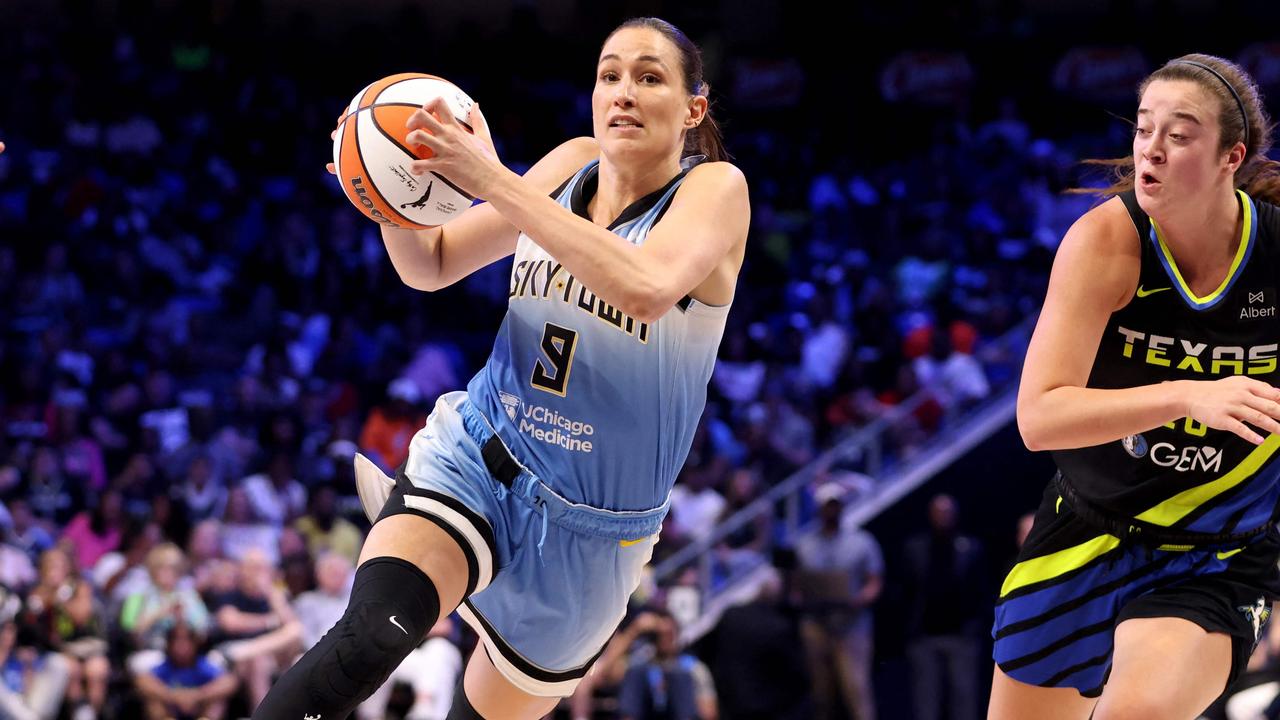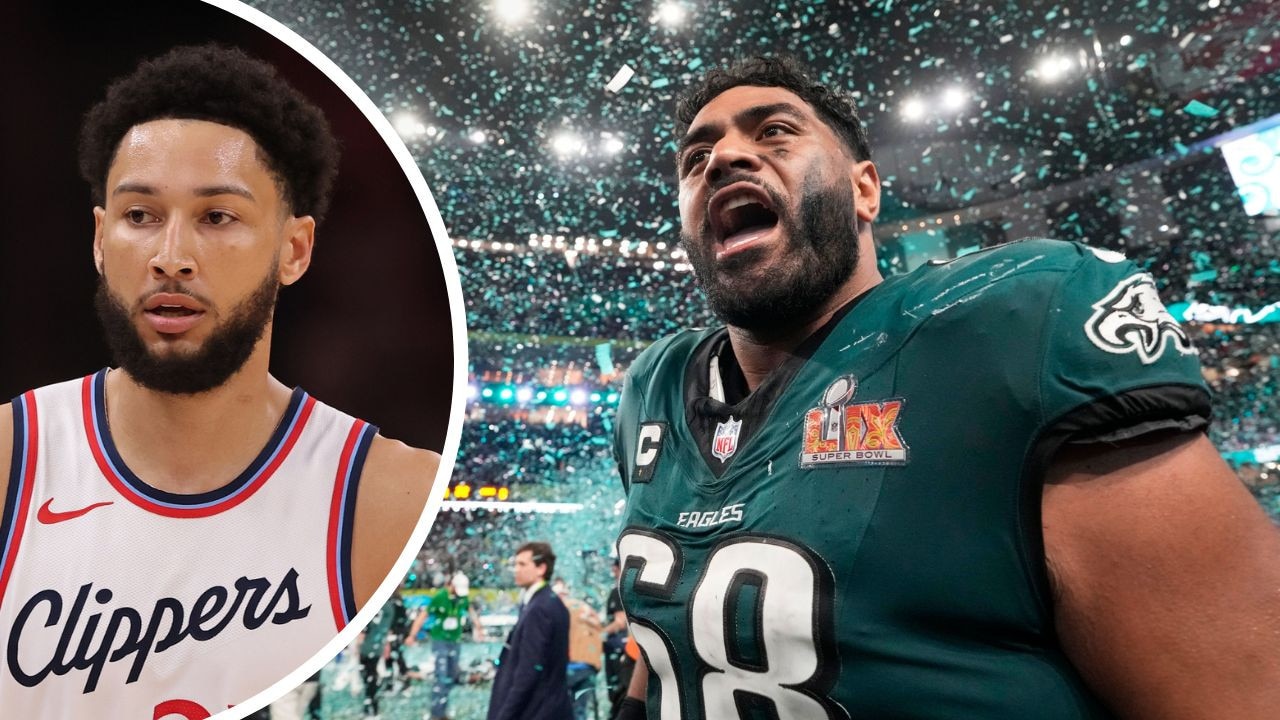NBL 2022: Cal Bruton opens up on his basketball history
NBL legend Cal Bruton has lived a life even the best script writers couldn’t dream up. From being institutionalised to fighting racism, he opens up on his life in basketball.
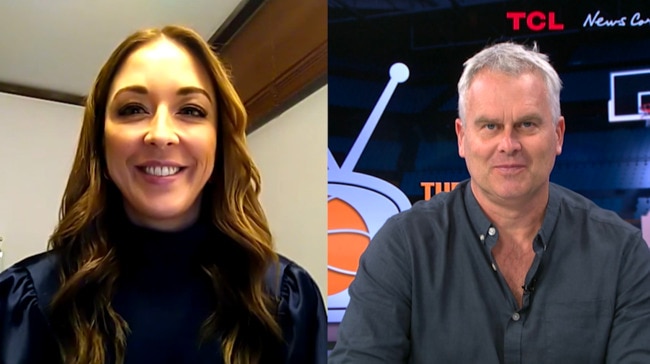
Basketball
Don't miss out on the headlines from Basketball. Followed categories will be added to My News.
Sitting with a straitjacket on as other patients walked in circles around him, Cal Bruton feared the worst.
It’s the mid-1970s and Bruton found himself in a New York mental institution after his alcoholic mother falsely claimed he had overdosed on drugs.
“I could hear the ambulance out the front, and I thought it was for the old lady next door, but then they started banging on my bedroom door,” reflected Bruton, a two-time NBL champion and Hall of Famer.
“The paramedics said we hear you’ve overdosed, and I could hear mum in the background saying, ‘get him out of here, if he dies in this house, I’m suing the city’.
“I had no choice but to go with them and they put me in a lockup ward.”
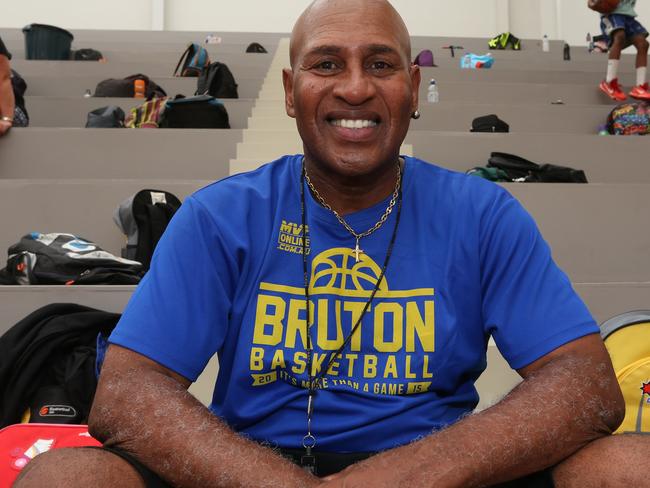
Bruton was faced with a man who was so delusional that he thought his fellow patient was a urinal.
“He was actually pointing at me, so I hit him in the chest, and he charged at me,” he said.
“We ended up scuffling, I’m hitting him in the back, and they put us both in straitjackets.”
The doctor gave Bruton a shot in the hip and he didn’t wake up until the following morning.
He woke to the daunting scene of patients walking around like zombies in the night as he pleaded with authorities to leave.
“I couldn’t believe it,” he said.
“There were communal showers and people were walking in circles and I felt like it was Midnight Express, so when I came out of the scene after three weeks, I knew I had to leave New York City.”
This wasn’t Bruton’s first experience with fear.
His father was stabbed to death during an armed robbery when he was seven, leaving his mum a single parent, heavily pregnant with his baby sister.
His mum, who turned to alcohol, struggled with addiction, and one day drank so much that she had to be taken away from the family home in a straitjacket.
“I’ll never forget it,” he said.
“My sister and I had to sit on mum’s arm because she felt that if her arm got exposed, she would die and all of us would die with her.
“I managed to call my uncle to come over, but mum didn’t want him there. “She said no that is the devil, but my uncle came, and he called the ambulance.
“They then took my other sister and put her in a straitjacket with mum because she was so exhausted and worried.
“My little sister then went to another family, leaving me to look after the house at age 12.”
Bruton became the man of the house for the second time.
The first time was when he lost his father, leaving him as the sole male in a house of females.
Bruton saw the responsibility as a badge of honour.
“I remember getting the bills and having to stack them,” he reflected.
“Then when mum’s cheque came for compensation from dad, I had to take it to the hospital to get her to sign it.
“I was lucky in some ways because mum made me very independent early.
“She was also resilient.
“My shoes had cardboard on the bottom, but mum always told me never to complain about anything, you just keep on moving.”
Congratulations to NBL icon Cal Bruton, who has been awarded a Medal of the Order of Australia for his service to basketball as a player, coach and in the community 🇦🇺🀠pic.twitter.com/0J1Vxe7ToH
— The NBL (@NBL) January 25, 2021
Bruton’s resilience was personified when it came to his youngest sister, who received regular racial abuse as an intellectually handicapped and an albino African American growing up in a tough neighbourhood.
“I had to protect her,” Bruton said.
“We went to school together for a few years before the kids started picking on her.
“I got into fight protecting her because I was in a predominantly black neighbourhood and because she was albino they said, ‘let go of the white girl’s hand’.
I was like, ‘what white girl? That is my sister, so I went to war a little bit.
“That is why I’m a feisty little fella to this day.”
LIFE AFTER THE STRAITJACKET
After spending three weeks inside a New York mental institution, Bruton was determined to turn his life around.
It’s why he quit his schoolteacher job and fled the Big Apple via a 24-hour bus ride to Wichita in Kansas State to start his new career as a garbage man.
“I was scared, I didn’t have a place to stay, and I just banked on getting some help from somebody,” he said.
“I only had one bag of clothes, but I just knew I had to get on my feet.”
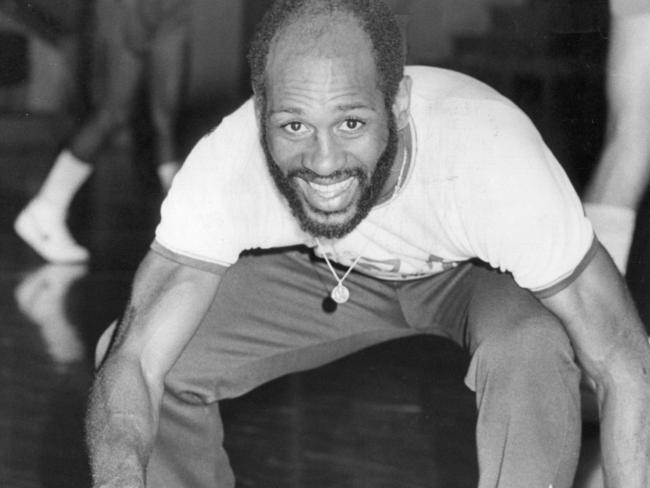
Bruton eventually found his feet living with friends, including his wife to be, while he became accustomed to his new life collecting garbage.
His life then changed forever when he received a phone call at 4am in the morning from well-known recruiter David Adkins to join the Brisbane Bullets as the franchise’s inaugural import in 1979.
“I said as long as you can pay more than the $400 dollars, I’m earning to be a garbage man, I’m in,” he said.
“He ended up paying me $400 a week, but he’d also get me a part-time job and everything else would be taken care of.”
RACISM IN OZ
Bruton’s initial years in the NBL were memorable, but he also copped racist comments on a consistent basis.
The White Australia policy was officially abolished in 1973, but attitudes towards people of colour remained backwards.
Bruton particularly felt disrespected when he played against the Nunawading Spectres because he believed the club’s logo of a ghost looked like white supremacist group, the Ku Klux Klan.
“I was a little bit ignorant about the Nunawading Spectres’ logo — I only knew it as a hood with the eyes cut out,” Bruton said ahead of the NBL’s annual Indigenous Round this weekend.
“They called it a Spectre, but I called it the Ku Klux Klan.
“The fans booed and hissed at me. The players were all white on the team and they said they would get me.
“There was one game when I scored 41 points against the Spectres, we won, and I had to get a police escort out of the building because I told the fans to be quiet.
“That was the wrong thing to do in the Nunawading stadium.”

Over 40 years have passed since Bruton’s racism experience playing against Nunawading, but it didn’t stop the club from reaching out to him late last year to apologise.
“It was nothing to do with the club now, but they apologised for what I had to go through, which I thought was quite nice,” he said.
“They had heard my story and felt like that was something they didn’t want to be remembered as and they looked at my current role, which aims to bring Indigenous people into the workforce.”
Bruton was one of only two black American players in the NBL’s first season in ‘79.
The other was Herb McEachin (Canberra Cannons) and the pair regularly catch-up in their hometown of Canberra to reminisce.
“We often talk about the challenges we faced and how we came through it,” he said.
“Our resilience, character, commitment and the way we played the game has helped pave the way for more black players to come out here and play.
“We feel like we have given everything to Australian basketball.”
GIVING BACK
Bruton has used his challenges in life as motivation and inspiration to help others.
He dedicates countless hours to working in the Indigenous community while he is set to announce his own Foundation in a bid to help with employment opportunities.
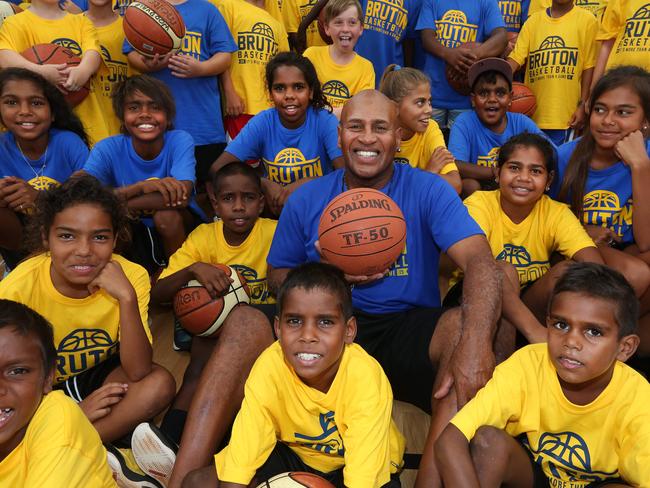
Bruton sees himself, the boy from Queens who had to overcome countless setbacks, in the children he works with every day.
“That is what drives me to keep giving back,” said, Bruton, who was awarded an Order of Australia Medal last year for his service to basketball as a player and coach.
“You might not get things when you want, but eventually they will come if you continue to do the right thing.
“I’m really proud of the work I’ve done. I don’t think there is a person that has gone to every state in Australia to help these young kids.
“But I don’t do it for the froth and the bubble and to go on stage. No, I’m going into the red dirt and I’m trying to change lives.”




